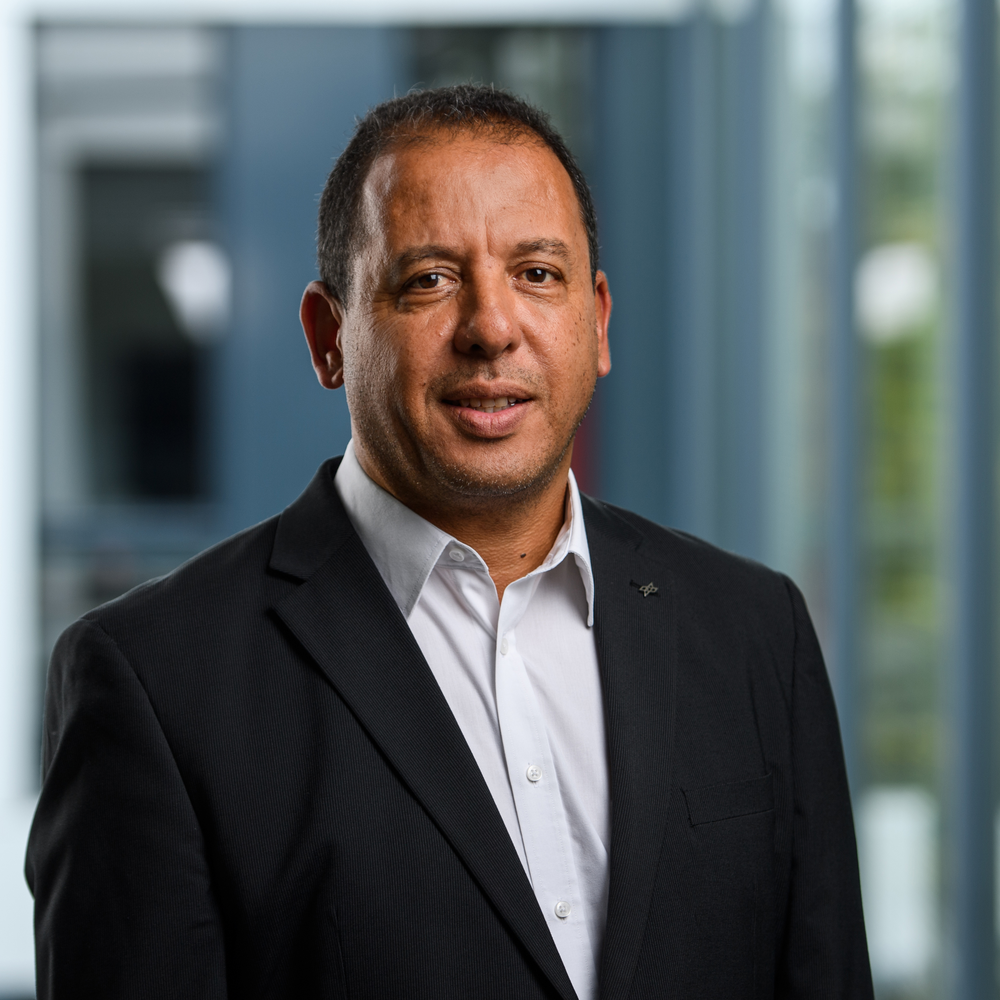Thinking ahead – from the start

Ilja C. Hendel/Wissenschaft im Dialog
The freedom of scientific inquiry is protected by law. Political decision-makers, public funding agencies and foundations may set goals for scientific funding, but they have no influence on research results. They can, however, demand that funded projects make a tangible impact and contribute to a better future. DLR Projektträger has a tradition of facilitating this, Always adhering to the principle: Thinking ahead!
Project management agencies such as DLR Projektträger are appointed by federal and state ministries, the European Commission and other institutions to develop funding strategies, manage programmes and promote the transfer of results to industry and society. In 2025, DLR Projektträger will turn 50. Two recent examples illustrate how the agency fulfils its mission.
Securing technological sovereignity

In times of increasing geopolitical tension, it is crucial for Germany to maintain reliable access to key technologies, such as artificial intelligence (AI), microelectronics and quantum technologies. This does not necessarily mean that all relevant technologies must be developed in Germany or Europe, or that all components must be produced locally. However, one-sided dependencies on other countries should be avoided. To help ensure that Germany remains competitive as a high-tech nation while ensuring technological sovereignty, the Federal Ministry of Education and Research (BMBF) has established – among other initiatives – the Council for Technological Sovereignty. This council, a committee of ten experts, provides strategic advice to the BMBF on key technologies and helps identify relevant technological sectors in the context of technological sovereignty. DLR Projektträger supports the council with its expertise in strategy consulting.
Why is technological sovereignty important?
Key technologies will influence tomorrow's life in many ways. We need reliable access to key technologies if we are to meet our societal needs in the long term. Those range from fundamental requirements such as healthcare, infrastructure, and the supply of sustainable energy, to mobility and reliable digital services.
What challenges are involved in identifying technologies that are strategically important for our future?
On the one hand, key technological trends must be identified and categorised. For instance, we are currently seeing significant advances in AI. Through foresight analyses, we attempt to anticipate future needs and solutions based on past developments and current trends. On the other hand, the interplay between technologies must also be analysed. The field of robotics, for example, relies on many key technologies. In one of its position papers, the Council for Technological Sovereignty demonstrated how microelectronics, AI, communication technologies and many other sectors play a role in this field of application.
Research networks persist, even in times of war

Adobe Stock/lensw0rld
The Russian invasion of Ukraine has severely disrupted the country's scientific community. Nevertheless, Ukrainian researchers continue to collaborate on joint projects with German partners. "This ongoing cooperation is made possible thanks to a longstanding, trustful relationship," says Nino Chkoidze. As DLR Projektträger's advisor for Ukraine, she manages research collaborations on behalf of the Federal Ministry of Education and Research (BMBF).
"A major issue for science in Ukraine is the brain drain. In various projects, we are working to counteract the trend of scientists leaving the country," explains Chkoidze. One such initiative sees German and Ukrainian researchers collaborating to establish four 'cores of excellence' across Ukraine, with new research hubs planned for Lviv, Kyiv and Kharkiv. Here, research will focus on topics such as European history of the 20th century and new quantum materials. These cores of excellence represent a strategy for rebuilding the scientific landscape of Ukraine.
As part of its BMBF mandate for the 'International Bureau', DLR Projektträger supports research collaboration between German institutions and companies and Ukraine, as well as with many other countries worldwide. Since 1996, DLR Projektträger has been responsible for this task. Acting as the 'International Bureau', DLR Projektträger advises the BMBF on the design of intergovernmental cooperation, develops and implements new funding concepts, and facilitates networking as well as exchange programmes. Over the years, DLR Projektträger has built a global network of research contacts. "Established research networks are the foundation for continued collaboration," says Chkoidze. "In times of war and reconstruction alike."
The Science Year 2024
For 20 years, DLR Projektträger has been implementing the 'Science Years' on behalf of the Federal Ministry of Education and Research (BMBF), providing researchers with a testing ground for innovations in science communication. Science Year 2024 – Freedom encourages discussions on the concept, value and significance of freedom. As the 75th anniversary of the German Constitution and the 35th anniversary of the fall of the Berlin Wall remind us, freedom is not something to be taken for granted, even in our society.
An article by Lovis Krüger from the DLRmagazine 176
Related links
- Website DLR Projektträger
- Science Year 2024 (DLR Projektträger)
